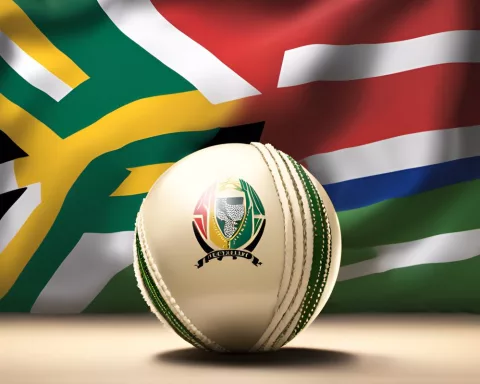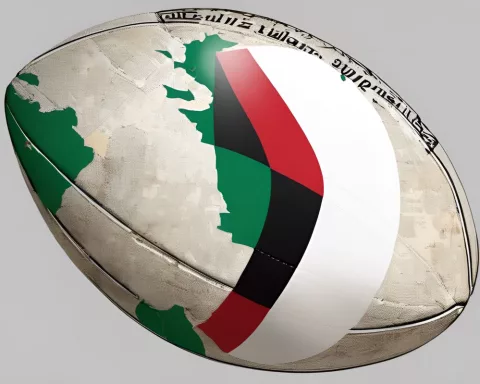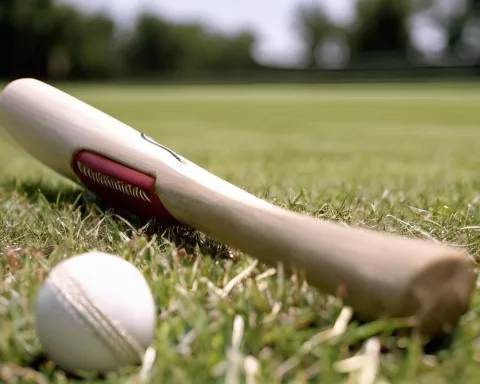The removal of David Teeger from the South African Under-19 cricket team captainship has sparked controversy. Despite an investigation finding his remarks were not in violation of any conduct codes, Cricket South Africa (CSA) withdrew his captainship, leading to accusations of discrimination and political interference. The controversy has implications for the worldwide cricketing community, with the International Cricket Council’s (ICC) decision to allow the tournament to proceed viewed by some as tacit approval. The South African Jewish Board of Deputies (SAJBD) has demanded Teeger’s reinstatement, whilst others argue it highlights a broader debate about the role of politics and religion in sport.
What is the controversy surrounding David Teeger’s removal from the South African Under-19 cricket team captainship?
David Teeger was removed from the captainship of the South African Under-19 cricket team after his remarks were perceived as favoring Israel. Despite the investigation clarifying that his statements were not in violation of any conduct codes, Cricket South Africa (CSA) withdrew his captainship. The decision was criticized for discrimination and political intrusion, with some alleging that it was rooted in antisemitism. The controversy implicates the worldwide cricketing community, with the International Cricket Council’s (ICC) choice to let the tournament proceed despite CSA’s decision viewed as a tacit approval.
In recent times, the South African cricket scene has been under a microscope, encountering a whirlwind of controversy. The controversy chiefly revolves around David Teeger, a budding cricketer whose abrupt removal from the captainship of the South African Under-19 team has triggered a nationwide discourse about the interplay of sports, politics, and faith.
The Unexpected Fall of a Rising Star
David Teeger was once the acclaimed captain of the South African Under-19 cricket team. However, his celebrated position was swiftly stripped away following his remarks that were perceived as favoring Israel. He made these remarks during his thanks-giving speech at the Absa Jewish Achiever Rising Star Awards in late 2023, where he hailed the young Israeli soldiers as the “real rising stars”. Despite an independent investigation clarifying that his statements were not in violation of any conduct codes, Teeger’s captainship was still withdrawn. Cricket South Africa (CSA) rationalized its action by referring indirectly to unspecified security risks.
This decision by CSA ignited a wave of criticism, with critics condemning the organization for discrimination and political intrusion. The South African Jewish Board of Deputies (SAJBD) has been vocally critical of CSA’s decision, asserting that no convincing proof of security threats was presented.
Political Manipulation in Sports?
Professor Karen Milner, the Chair of the SAJBD, unleashed a potent denunciation of CSA’s decisions. She posited that even if there was legitimate information concerning a possible security threat, CSA could have counteracted it through strategies such as changing the game locations or enhancing security, rather than depriving Teeger of his captainship.
Milner’s analysis of the situation led her to believe that the decision was rooted not in security worries, but in antisemitism. She contends, “There are valid reasons why reputable sports bodies abstain from political interference. This should have been the situation with CSA, but regrettably, it was not. Instead, we are witnessing high-level political meddling with an ominous, prejudiced agenda.”
Impact on the Global Cricket Scene
The discord extends beyond the confines of South Africa, implicating the worldwide cricketing community. The International Cricket Council’s (ICC) choice to let the tournament proceed despite CSA’s contentious decision is viewed by some, including Professor Milner, as a tacit approval of CSA’s move.
Advocacy for Reversal of Decision
In response to this controversy, the SAJBD isn’t merely criticizing CSA; it is also suggesting a resolution. The Board has publicly demanded the reinstatement of Teeger as the captain of the Under-19 team, encouraging CSA to reconsider its decision given the public backlash.
The Teeger controversy is a potent reminder of the range of factors that can affect sports, transcending mere field performance. As this saga continues to evolve, it becomes increasingly apparent that it’s more than a debate over a captaincy; it’s a broader dialogue about the role of politics, religion, and personal beliefs in sports. The future developments could establish a precedent for how such matters are dealt with, not only in South Africa but also on the global stage.
Was David Teeger’s removal from the captainship of the South African Under-19 cricket team based on his remarks?
Yes, David Teeger was removed from the captainship of the South African Under-19 cricket team based on his remarks perceived as favoring Israel during his thanks-giving speech at the Absa Jewish Achiever Rising Star Awards.
Was it found that David Teeger’s remarks were in violation of any conduct codes?
No, an independent investigation found that David Teeger’s remarks were not in violation of any conduct codes.
What is the South African Jewish Board of Deputies (SAJBD) demanding regarding David Teeger’s removal from captainship?
The South African Jewish Board of Deputies (SAJBD) has demanded the reinstatement of David Teeger as the captain of the Under-19 team and has been critical of Cricket South Africa’s decision to remove him.
What is the broader debate about the role of politics and religion in sport?
The controversy surrounding David Teeger’s removal from the South African Under-19 cricket team captainship has sparked a broader debate about the interplay of sports, politics, and faith.
What is Professor Karen Milner’s analysis of the situation?
Professor Karen Milner, the Chair of the SAJBD, believes that Cricket South Africa’s decision to remove David Teeger was not based on security threats, but rather rooted in antisemitism and political meddling.
How does the controversy impact the worldwide cricketing community?
The controversy has implications for the worldwide cricketing community, with the International Cricket Council’s (ICC) decision to allow the tournament to proceed despite Cricket South Africa’s decision viewed by some as tacit approval.












